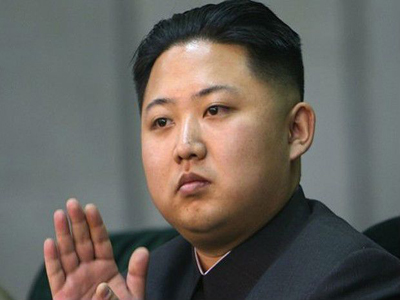-
Tips for becoming a good boxer - November 6, 2020
-
7 expert tips for making your hens night a memorable one - November 6, 2020
-
5 reasons to host your Christmas party on a cruise boat - November 6, 2020
-
What to do when you’re charged with a crime - November 6, 2020
-
Should you get one or multiple dogs? Here’s all you need to know - November 3, 2020
-
A Guide: How to Build Your Very Own Magic Mirror - February 14, 2019
-
Our Top Inspirational Baseball Stars - November 24, 2018
-
Five Tech Tools That Will Help You Turn Your Blog into a Business - November 24, 2018
-
How to Indulge on Vacation without Expanding Your Waist - November 9, 2018
-
5 Strategies for Businesses to Appeal to Today’s Increasingly Mobile-Crazed Customers - November 9, 2018
Seoul resumes anti-Pyongyang propaganda broadcasts
The resumption came in retaliation for North Korea’s first successful hydrogen bomb test on Wednesday.
Advertisement
Nuclear weapons tests, Nelson said, constitute a grave threat to worldwide peace and security and undermine the global norm established by the Comprehensive Nuclear Test-Ban Treaty against nuclear test explosions.
The United States and its ally South Korea are limited in their military response.
South Korea decides to retaliate over the nuke test by restarting from Friday anti-Pyongyang propaganda broadcasts along its border with the North for the first time in almost five months.
South Korea’s military switched on loudspeakers along the inter-Korean border earlier in the day, blasting not only propaganda messages critical of the reclusive North Korean regime and its leader Kim Jong-un, but also the hottest K-pop beats.
The loudspeaker broadcasts began at noon (1000 ET) and another official said the military heightened the level of alert around the locations where the propaganda was being broadcast.
South Korean officials say there have been no disruptions so far at an industrial park jointly operated by the rivals in the North Korean border town of Kaesong.
While the South’s broadcasts also include news and pop music, much of the programming challenges North Korea’s government more directly. Leaflets by the American-led United Nations forces typically urged North Korean and Chinese troops to surrender, while North Korean leaflets criticized the United Nations forces and tried to make them homesick by posting pictures of Marilyn Monroe and Thanksgiving Day turkeys, according to South Korean media reports.
Diplomats at a U.N. Security Council emergency session pledged to swiftly pursue new sanctions.
The U.S. military’s Pacific Command says in a statement that the bomber was joined by South Korean F-15 and U.S. F-16 fighters in the fly-over show of force. It claimed the last, on Tuesday, was a hydrogen bomb, though the White House has shed doubt on that assertion.
Late Friday, the Korea Institute of Nuclear Safety said a small amount of radioactive elements was found in air samples collected from the peninsula’s eastern seas after the blast, but the measured amount was too small to determine whether the North had really detonated a nuclear device.
South Korean and US military leaders also have discussed the deployment of USA “strategic assets”, Seoul’s Defense Ministry said.
But South Korea sees K-pop and propaganda as quick ways to show its displeasure – and a guaranteed irritant to the North’s sensitive and proud leadership.
Advertisement
The resumed anti-Pyongyang broadcast will freshly include the latest South Korean pop songs such as “100 years of life”, the most-sought-after single of late by Lee Ae-ran. Some defectors, who had served as front-line soldiers while in the North, have said they enjoyed South Korean broadcasts that contained pop songs and sometimes forecast rain and recommended gathering up laundry hung on outdoor clotheslines.





























